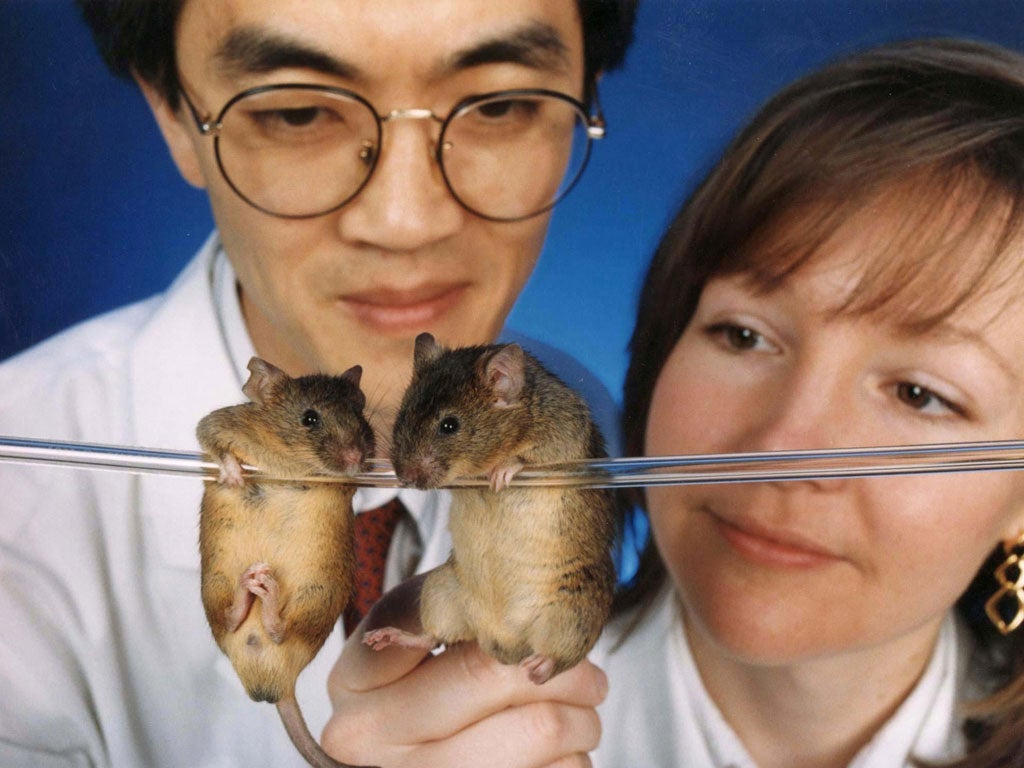Universities report boom for sciences
Students are shunning humanities subjects

Your support helps us to tell the story
From reproductive rights to climate change to Big Tech, The Independent is on the ground when the story is developing. Whether it's investigating the financials of Elon Musk's pro-Trump PAC or producing our latest documentary, 'The A Word', which shines a light on the American women fighting for reproductive rights, we know how important it is to parse out the facts from the messaging.
At such a critical moment in US history, we need reporters on the ground. Your donation allows us to keep sending journalists to speak to both sides of the story.
The Independent is trusted by Americans across the entire political spectrum. And unlike many other quality news outlets, we choose not to lock Americans out of our reporting and analysis with paywalls. We believe quality journalism should be available to everyone, paid for by those who can afford it.
Your support makes all the difference.The class of 2012 appears to be shunning humanities subjects in favour of those that will lead to more lucrative employment, an analysis of applications to Cambridge University this year shows.
Overall, applications have remained fairly buoyant despite the introduction of fees of £9,000 a year – with a 3 per cent rise in the number of state school applicants and no overall changes for UK students as a whole.
However, a closer analysis of the figures reveals a growth in maths and science applications – with engineering up as much as 12 per cent – while most of the humanities subjects have shown a drop.
"It would be very unfortunate if there were a utilitarian approach being adopted by students to choosing their university subjects," said Dr Geoff Parks, head of admissions at Cambridge University. "However, we will probably have to wait before we can say this is a trend."
He said the advice given to students should mirror the old adage "do well at a good university and do well at a subject you really enjoy". Almost all the science subjects showed a rise in applications while all the humanities recorded a drop, he added.
Academics around the country have warned of an anti-humanities bias in the new fees regime which comes into force in September.
There will still be scramble for places when students get their A-level results on Thursday, as there are about 100,000 more applicants than places despite a drop of 9 per cent from UK would-be undergraduates this summer. There are also 20,000 fewer places available as a result of the Government withdrawing extra places that had been on offer since the start of the recession.
Dr Parks also predicted that the Government would have to drop any idea of scrapping AS-level exams as a result of its planned A-level reforms. The consensus of opinion among academics and head teachers was against the idea of removing the exam taken by most young people at the end of the first year of the sixth form.
"If you don't have it, you could have students struggling for two years without realising they'd made a terrible mistake," he added.
Also, research showed that offers made to applicants based on their work post-16 were a more reliable indicator of their potential degree achievement than if they were based just on GCSE results.
Dr Parks also claimed that Michael Gove will have to delay the implementation of his reforms – scheduled for next September – because the current timetable is "unrealistic".
Meanwhile, a clampdown on grade inflation could cause the pass rate in some subjects to fall this year. Ofqual, the exams regulator, has told the exam board each grade at GCSE and A-level should be "roughly" the same as last year. However, subjects such as GCSE science, where the regulator has ordered the syllabus to be tightened up, could experience a fall in the pass rate.
As a result of Ofqual's policy, thousands of schools expecting improved results – particularly in maths and English at GCSE – are likely to be disappointed, head teachers' leaders warned.
Join our commenting forum
Join thought-provoking conversations, follow other Independent readers and see their replies
Comments